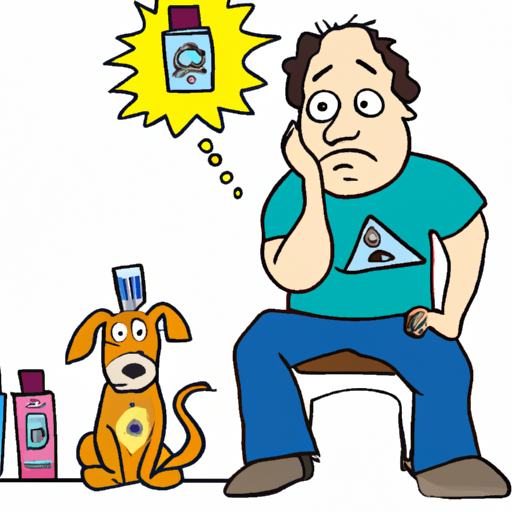Understanding Your Dog’s Condition
First and foremost, it’s important to understand your furry friend’s condition. Dogs with seizures experience an abnormal electrical activity in their brains, which can manifest in a variety of ways – from twitching to loss of consciousness. It’s heart-wrenching to watch, but remember, you’re not alone. Many dog owners navigate this condition and manage to provide a high quality of life for their pets.
Risks Associated with Traditional Flea Treatments
Now, let’s talk about flea treatments. Most flea treatments contain chemicals that could potentially exacerbate your dog’s seizures. For instance:
- Pyrethrins and Pyrethroids: These are natural and synthetic chemicals, respectively, used in many flea treatments. They are known to overstimulate the nervous system, which can lead to seizures.
- Organophosphates: Another common ingredient, organophosphates can also cause neurological issues in dogs.
| Common Flea Treatment Chemicals | Potential Risks |
|---|---|
| Pyrethrins and Pyrethroids | Overstimulation of nervous system |
| Organophosphates | Neurological issues |
Safe Flea Treatment Options
So, what can you use instead? Here are a few safer alternatives:
- Natural Oils: Certain essential oils like cedarwood, lavender, and lemongrass can repel fleas without harming your pet. Always dilute these oils with a carrier oil before use.
- Diatomaceous Earth: This natural powder can be dusted on your dog’s coat to kill fleas.
- Flea Combs: Regularly combing your dog with a flea comb can help remove and kill fleas.
Remember, it’s always crucial to consult with your vet before starting any new treatment.
Regular Prevention is Key
Preventing a flea infestation in the first place is the best way to protect your dog. This includes regular cleaning of your home and your dog’s bedding, as well as maintaining your yard to deter fleas.
FAQs
Q: Can I use flea collars for my dog with seizures?
A: Flea collars often contain the same harmful chemicals as other flea treatments. Always check with your vet before using one.
Q: Can I use flea treatments meant for other animals on my dog?
A: No, always use treatments specifically designed for dogs. Using treatments for other animals can be harmful.
Q: How often should I use natural flea treatments?
A: Different treatments have different suggested usage rates. Always follow the instructions provided and consult your vet.
Caring for a dog with seizures can be challenging, but with careful management and the right treatments, you can ensure your dog lives a happy, healthy life.



